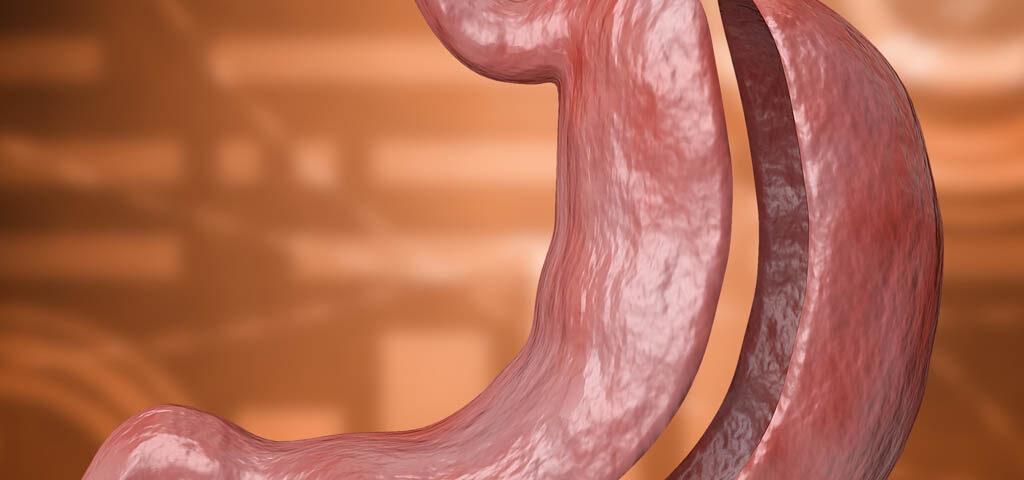TL;DR:
- What is it? Gastric reduction surgery reduces stomach size to limit food intake and aid weight loss.
- Methods: Sleeve gastrectomy (80% stomach removal, permanent), Gastric bypass (small stomach connected to intestine), Endoscopic gastric reduction (non-invasive suturing via endoscope).
- Eligibility: BMI >40 or >35 with comorbidities (e.g., diabetes, hypertension); pre-op tests and consultations required.
- Costs: Private surgery costs range from PLN 15,000–30,000; National Health Fund (NHF) covers some methods, but with eligibility criteria.
- Post-op Effects: 50-70% excess weight loss in 2 years; improved health (e.g., diabetes remission); better mobility and self-confidence.
- Risks: Nausea, infections, hernia, gastric leakage, vitamin/mineral deficiencies.
- Recovery: Liquid diet (2 weeks), gradual food reintroduction, supplements, hydration, light activity initially, full exercise after 6 weeks.
Surgical gastric reduction is becoming an increasingly common choice for people for whom other methods of combating obesity have failed. Overweight, affecting a large part of the population, does not only affect general well-being, but also poses a real threat to health, leading to numerous chronic diseases, including diabetes, heart disease and hypertension. From the following article, patients will learn, among other things, what gastric reduction surgery consists of and when it is worth opting for it, as well as the available methods and estimated costs of such a procedure.
What does gastric reduction surgery consist of?
Stomach reduction surgery is a surgical method of combating obesity that aims to reduce the volume of this organ, resulting in a reduction in the amount of food consumed and a faster feeling of satiety. It is an invaluable help for people who have so far had problems with limiting their caloric intake and have been unable to deny themselves various tasty snacks. Doctors use the techniques listed below.
- Sleeve gastrectomy (a.k.a. laparoscopic gastric reduction) – involves the removal of about 80% of the stomach, resulting in a long, tube-shaped stomach. This procedure is permanent and irreversible.
- Gastric Bypass – is the creation of a small stomach reservoir, which is then directly connected to the small intestine. The procedure not only reduces the amount of food consumed, but also reduces the absorption of calories.
- Endoscopic gastric reduction – this method is based on the insertion of an endoscope through the mouth, with the help of which special sutures are made inside the stomach, thus reducing its volume. It is less invasive than traditional surgical methods.

Gastric reduction surgery – when to opt for it?
The decision to undergo gastric reduction surgery, no matter whether you decide to have a gastric reduction on the National Health Service or privately, should be carefully considered and consulted with a specialist. As with any surgery, bariatric surgery can carry unwanted side effects, which can be minimized by choosing a professional surgical facility, as well as performing all necessary tests beforehand.
People with a BMI (body mass index) above 40, which corresponds to giant obesity, are usually eligible for surgery. In some cases, such as when a patient suffers from comorbidities such as type 2 diabetes, hypertension or sleep apnea, doctors consider undertaking surgery with a BMI above 35.  As mentioned, before deciding to surgically reduce the stomach, a patient must undergo a series of thorough examinations and consultations with specialists in various fields, including a nutritionist, psychologist and surgeon. Why? A person who wants to win over obesity in this way must be aware of the lifestyle changes that will occur after surgery, and the possible risks associated with the procedure.
As mentioned, before deciding to surgically reduce the stomach, a patient must undergo a series of thorough examinations and consultations with specialists in various fields, including a nutritionist, psychologist and surgeon. Why? A person who wants to win over obesity in this way must be aware of the lifestyle changes that will occur after surgery, and the possible risks associated with the procedure.
Available methods for stomach reduction on the National Health Service and privately.
Surgical stomach reduction can be performed both under the National Health Fund (NHF) and privately. Under the National Health Fund, procedures such as sleeve gastrectomy and gastric bypass are available. To receive these surgeries under health insurance, patients must meet certain medical criteria and go through an eligibility process. read more.
Endoscopic gastric reduction on NFZ.
Endoscopic gastric reduction, while less invasive, is not always available through the National Health Service and is more often performed privately.
Private gastric reduction procedures.
Gastric reduction privately offers greater flexibility in choosing when to have the procedure and access to modern methods such as endoscopic gastric reduction. Gastric reduction surgery – price in private clinics can be higher, but patients often opt for private care due to shorter waiting times and better hospital stays.
Cost of gastric reduction surgery
Gastric reduction surgery – cost depends on the method the patient chooses and the location where the procedure is to be performed. For example, laparoscopic stomach reduction – the price can vary from 15 to as much as 25 thousand zlotys in private clinics. Endoscopic gastric reduction – the price of this procedure can be slightly higher due to the modernity of the method, and costs usually settle around PLN 30,000.
Gastric reduction – postoperative effects.
Bariatrics is a procedure that is primarily intended to benefit health, and figure changes are treated as a secondary element, although the results in most patients are usually very good. Individuals lose a significant amount of weight, leading to improvements in their health and quality of life, through changes that occur not only externally, but also in the psyche. Most commonly observed:
- loss of 50% to as much as 70% of excess body weight in the first two years;
- improvement or complete resolution of comorbidities, such as type 2 diabetes, hypertension or sleep apnea;
- improved mobility and physical performance;
- improved well-being and increased self-confidence.
Photos of post-operative results can be found under "gastric reduction before and after".
Stomach reduction – from what weight?
As we mentioned in an earlier part of the article, someone with a BMI above 40 or 35 undergoes the procedure in case of comorbidities. How does this translate into practice? Patients whose weight exceeds 100 kg are often already eligible for the procedure, especially if high weight affects people of relatively small stature, and obesity affects daily functioning and health deterioration.
Is gastric reduction without surgery possible?
It is believed that surgical stomach reduction is a permanent method with a high success factor, but there are also less invasive methods, such as the gastric balloon. What does this technique involve? A special fluid-filled balloon is inserted into the stomach, which reduces the volume of this organ, leading to a faster feeling of satiety. Unfortunately, it is believed that this method is only temporary and does not produce permanent results.
Side effects of gastric reduction.
Like any surgery, gastric reduction also involves the risk of various complications. Stomach reduction side effects include:
- nausea and vomiting;
- postoperative wound infections;
- postoperative hernia;
- leakage of gastric sutures;
- vitamin and mineral deficiencies, requiring supplementation.
You can minimize the risk of these by following all postoperative recommendations, which are discussed below.
Gastric reduction surgery – what should be observed after surgery?
In order for gastric reduction surgery to have the best possible results, it is necessary to follow all postoperative recommendations. Among the most important are the following ones:
Postoperative diet.
The first two weeks after the operation is the so-called liquid phase, during which the patient should take meals precisely in liquid form. After this time, semi-liquid foods such as yogurts, purees or creamy soups can be introduced, and after four weeks, the purée phase begins, which lasts until about the sixth week. Solid food intake can begin only after this period, although even then fatty, fried, spicy and highly processed foods should be avoided, while remembering to eat small portions, eat slowly and chew thoroughly.
Vitamin and mineral supplementation.
This is very important because bariatric surgery can lead to vitamin and mineral deficiencies, especially B vitamins, calcium, iron, vitamin D, folic acid and zinc.
Hydration
Hydration is important always and for everyone, but after gastric reduction surgery, special attention should be paid to this issue. At the same time, it is worth remembering to avoid a lot of liquid at once and to drink 30 minutes before and after a meal.
Physical activity
From the very first days after surgery, you can opt for gentle activity, such as walking. The introduction of regular exercise, which requires the patient to exert more effort, usually occurs after about six weeks. Gastric reduction surgery National Health Service, or privately, can be an effective way to fight obesity and improve one's health. However, it is important to make an informed decision about the procedure, after consulting with relevant specialists and weighing all the pros and cons.
Conclusion
Gastric reduction surgery offers a powerful solution for tackling severe obesity and related health risks. Through methods like sleeve gastrectomy, gastric bypass, or endoscopy, patients achieve significant weight loss, improved health, and a better quality of life. However, success requires commitment to lifestyle changes, careful medical guidance, and understanding the potential risks. Whether chosen through the public healthcare system or privately, this procedure can transform lives when approached with the right preparation and mindset. Ultimately, it’s a serious yet rewarding step toward long-term health and well-being.






